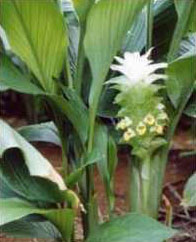 |
|||||||||||||||
|
|
Curcumin History
 Extracted from the roots of the curcuma longa plant, tumeric is a member of the ginger family. Curcumin is an active ingredient of turmeric that gives it a rich yellow color. While curcumin is not used in conventional medicine, it is widely prescribed in Indian medicine as a potent remedy for liver disorders, rheumatism, diabetic wounds, digestive aids, runny nose, cough, and sinusitis. Extracted from the roots of the curcuma longa plant, tumeric is a member of the ginger family. Curcumin is an active ingredient of turmeric that gives it a rich yellow color. While curcumin is not used in conventional medicine, it is widely prescribed in Indian medicine as a potent remedy for liver disorders, rheumatism, diabetic wounds, digestive aids, runny nose, cough, and sinusitis.
Traditional Chinese medicine uses curcumin as a treatment for diseases associated with abdominal pain, and was used in ancient Hindu medicine as a treatment for sprains and swelling. At least a dozen clinical trials on humans are under way in the United States, Israel and England to test curcumin, and articles on curcumin have been cited 967 times since 2000 in articles reported in PubMed, the National Library of Medicine's research service. It's been demonstrated in both humans and animals that curcumin protects the liver, reduces inflammation, fights some infections, and blocks toxic substance from reaching or reacting with body tissues. Curcumin has both antioxidant and anti-inflammatory properties, and it may help lower cholesterol by stopping the oxidation of cholesterol to promote vascular health. |